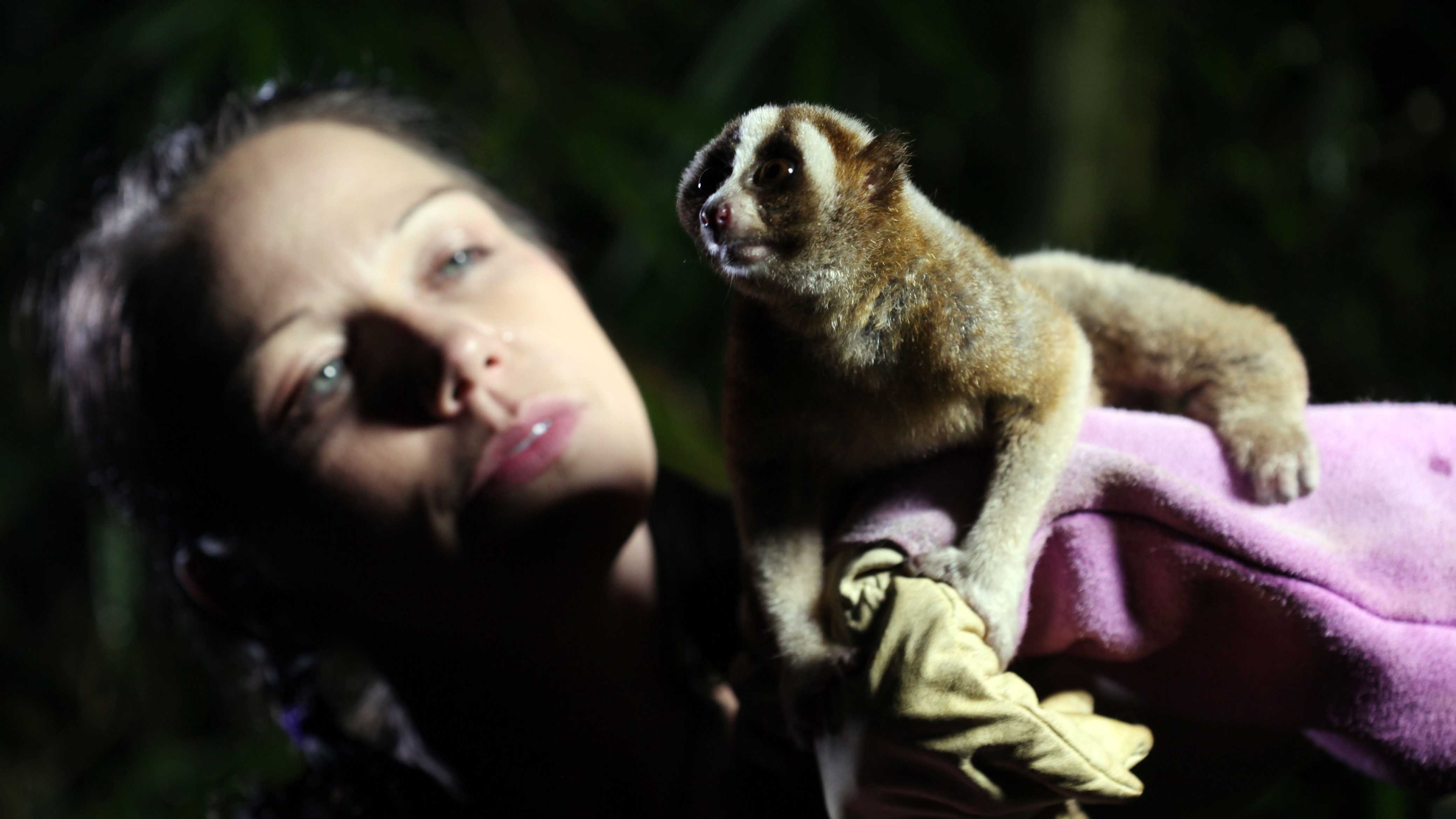BBC wildlife doc brings calls to ban YouTube's slow loris clip
Documentary lifts lid on pet trade cruelty and leads to campaign to remove ‘cute' video

A free daily email with the biggest news stories of the day – and the best features from TheWeek.com
You are now subscribed
Your newsletter sign-up was successful
ONE of the most popular videos on YouTube, showing a cute-looking slow loris being tickled by its owner, has come under fire after a BBC documentary said the clip was fuelling the illegal pet trade and putting an endangered species at risk.
The video of a woman stroking a slow loris called Sonya while it holds its arms in the air has attracted well over nine million hits since it was posted on the video-sharing website by Russian Dmitry Sergeyev in 2009.
Today he and the website were bombarded with demands to take the clip down after last night's documentary, even though Sergeyev insists the pet was bred in captivity.
The Week
Escape your echo chamber. Get the facts behind the news, plus analysis from multiple perspectives.

Sign up for The Week's Free Newsletters
From our morning news briefing to a weekly Good News Newsletter, get the best of The Week delivered directly to your inbox.
From our morning news briefing to a weekly Good News Newsletter, get the best of The Week delivered directly to your inbox.
The BBC Natural World show, called Jungle Gremlins of Java, followed loris expert Dr Anna Nekaris (above) to Indonesia where she studies the unusual animals, which secrete a poison, produce foul smelling urine and are the only mammals to have a toxic bite.
As the Metro newspaper reported, the show made it "pretty clear that the slow loris is a long way off what anyone would consider suitable pet material".
But the animals are also extremely cute, with human-like hands, huge eyes and luxurious fur. And the programme revealed how ruthless traders would take animals from the wild and rip out their teeth with nail clippers before offering them for sale in markets.
The climax of the show featured Nekaris secretly filming at a Jakarta market. "When she broke down at the pathetic sight of sickly lorises trapped in boxes... their forlorn eyes speaking straight to her, it hit you in the stomach," said the Metro critic.
A free daily email with the biggest news stories of the day – and the best features from TheWeek.com
Nekaris also rounded on the YouTube clip. "It made me sick," she said. "This was a wild, nocturnal primate being filmed in a brightly lit room for the enjoyment of others. The worst thing was that people kept sending me the clip saying how cute it looked."
She lamented the fact that it made people want one as a pet, but her moving devotion to the animals may have paid off. As soon as the documentary concluded, messages began appearing on YouTube and Twitter demanding that the video be taken down.
Nekaris used Twitter to thank those who had taken action: "So glad the show had impact."
-
 The world’s most romantic hotels
The world’s most romantic hotelsThe Week Recommends Treetop hideaways, secluded villas and a woodland cabin – perfect settings for Valentine’s Day
-
 Democrats push for ICE accountability
Democrats push for ICE accountabilityFeature U.S. citizens shot and violently detained by immigration agents testify at Capitol Hill hearing
-
 The price of sporting glory
The price of sporting gloryFeature The Milan-Cortina Winter Olympics kicked off this week. Will Italy regret playing host?